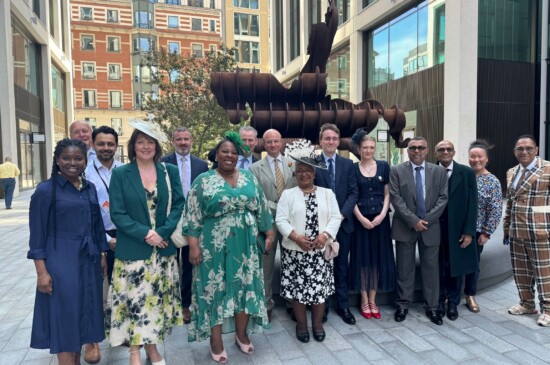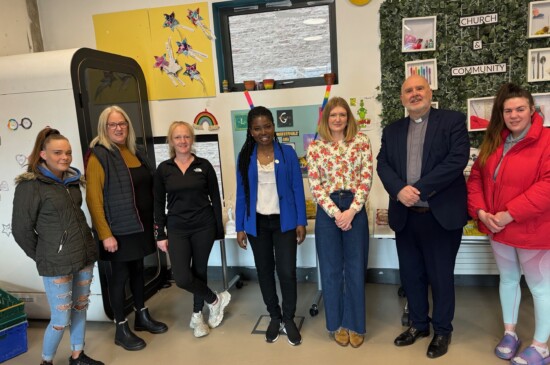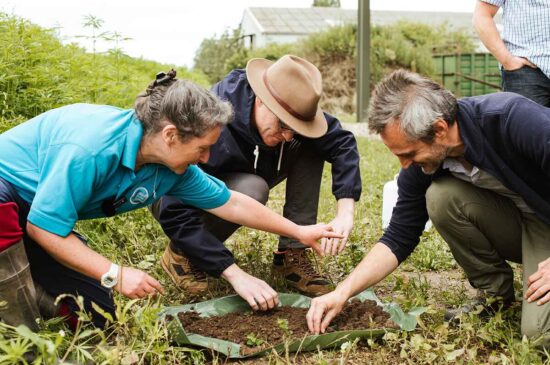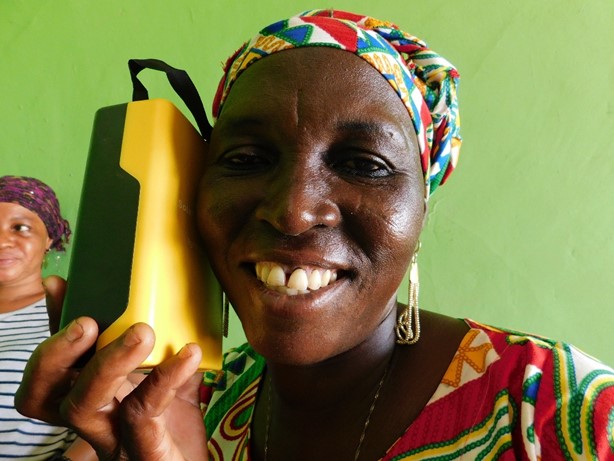
Guest blog: Lorna Young Foundation and Farmers’ Voice Radio
- Countryside
The King Charles III Charitable Fund first supported Farmers’ Voice Radio’s work in Ghana in 2019 (when the fund was known as the Prince of Wales’s Charitable Fund). Farmers’ Voice Radio connects smallholder farmers across Africa, Latin America and Asia to the information they need to succeed, through the power of participatory radio. Farmers’ Voice Radio is an initiative of the Lorna Young Foundation, a small UK charity based in Yorkshire.
Since 2019 the Farmers’ Voice Radio project in Ghana has been empowering female shea farmers through locally-producedradio programmesthat are broadcast in local language across the North of the country, with profoundly positive impacts. As described by one listener called Saudatu“I know lots of people who listen to Kpihi Saha (the name of the radio programme in local Dagbani language, meaning ‘Shea Time’). They keep talking about the benefits of the programme. Then they educate other women on not cutting trees and better quality production of the shea nuts.”
The King Charles III Charitable Fund was one of the first supporters of Farmers’ Voice Radio’s work in Ghana, which helped the team to leveragelong-term partnerships and funding with The Body Shop International,Tungtieya Women’s Association, the Dutch government FVO fund, Global Shea Alliance, Solidaridad and other trusts.
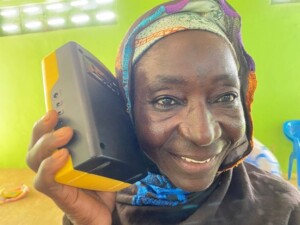
“I would recommend the radio programmes to my friends and neighbours and I would tell them how it is good to take good care of shea nuts, how to process the nuts, how to store the nuts and how to get the best from your nuts and that way you can make good income, and that is what I share with family in other communities about the things I have learnt from the radio programmes”explains Sinese, a listener and contributor to the radio programmes.
Shea is a diverse product that is commonly found as an ingredient in many food and beauty products, and its global demand is increasing. The shea nut is found in kernels from the shea tree that grows across the Sahel region, and it is predominantly collected and processed by women. However, the shea supply chain is under threat due to climate change, unsustainable agricultural practices and gender inequality. Climate change results in longer and more intense hunger seasons and many desperate farmers are deforesting shea trees to make charcoal, which provides quick income. The Farmers’ Voice Radio programmes discuss the importance of protecting the shea parklands, good agricultural practices, water conservation, access to agricultural inputs and how to make a reliable income from collecting and processing shea nuts. The programmes target female farmers, many of whom experience gender discrimination and low education levels that limit their ability to access information about their farming. The Farmers’ Voice Radio programmes overcome barriers of illiteracy and geographic isolation by broadcasting in local language, using the women’s voices, on existing community radio stations that have a huge listenership. Radio is one of the primary sources of information in Ghana and the impact of these radio programmes on local farming communities has been huge, resulting in improved yields of as much as 58%, and more resilient livelihoods. In the initial first year of the project we reached 750,000 farmers and since then we estimate that over a million people have listened to the radio programmes.
Ibrahim Salamatu explains how the radio programmes have helped her improve her shea business “Now I know I can store the shea nuts for longer. I normally pick the nuts and sell them immediately and I get a low price. I picked nuts and the bowl was 5 cedis. But now a bowl sells for 9 cedis. But if I keep the nuts for longer, the price will reach 12 cedis- so keeping the nuts longer is good.’”
Since the initial grant from The King Charles III Charitable Fund the radio programmes have evolved to include new language groups, radio stations and input from diverse businesses along the shea supply chain. The team is currently delivering a project that combines the radio programmes with face-to-face agricultural training and shea parkland protection advocacy.
One farmer called Sadha told us; “I like so many things about Farmer Radio because I hear what is going on in farming and I am ready to put it in to active work as a farmer, who is picking shea nut.”
The King Charles III Charitable Fund has also supported the Lorna Young Foundation to scale up and benefit an even greater number of farmers through the Farmers’ Voice Radio Academy. This is an online training programme for farmer organisations that seek to use participatory radio to empower producers that they work with. Through this virtual programme of teaching, one-to-one support and start-up grants we have trained 31 organisations from across Africa and Asia to produce their own radio programmes. Academy trainees have gone on to broadcast radio programmes that reach hundreds of thousands of people living in some of the most remote parts of the world. In 2024 we hope to launch a Farmers’ Voice Radio Academy programme in Spanish focussed on Latin American producer groups- so watch this space!
It was a huge honour for Ian Agnew and Hannah Clark from Farmers’ Voice Radio to attend the Summer Reception last year and share with His Majesty the impact of the Fund’s support to smallholder farming communities in some of the poorest parts of the world. On behalf of the rural farmers and communities we work with, we thank the King Charles III Charitable Fund for all your encouragement and support.
Image credit Lorna Young Foundation
